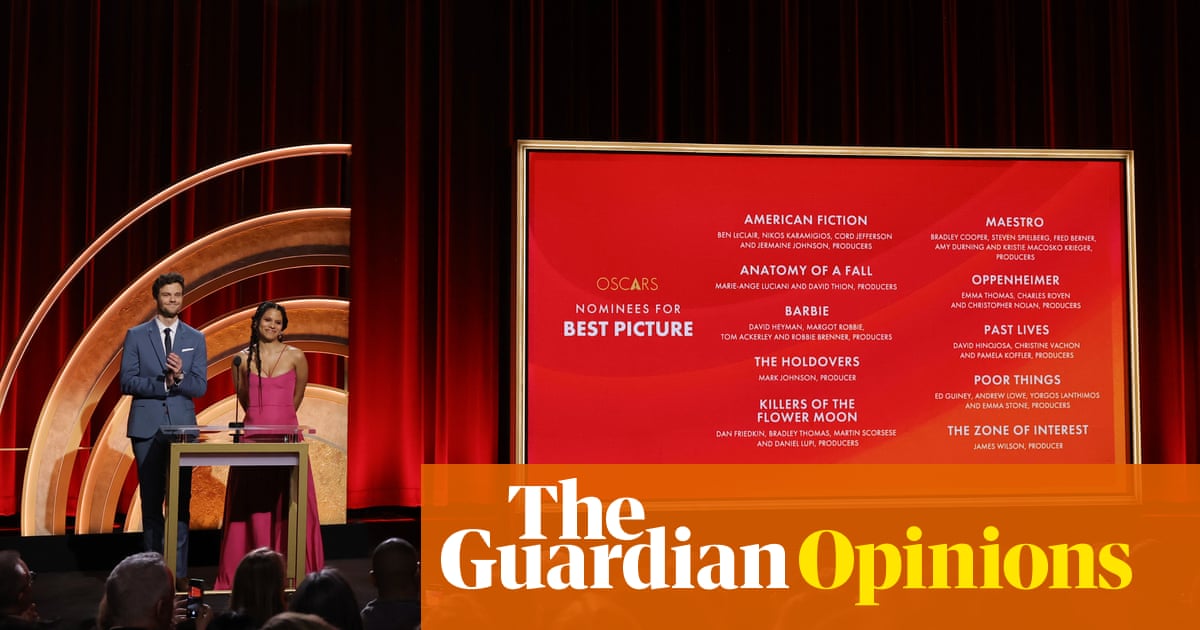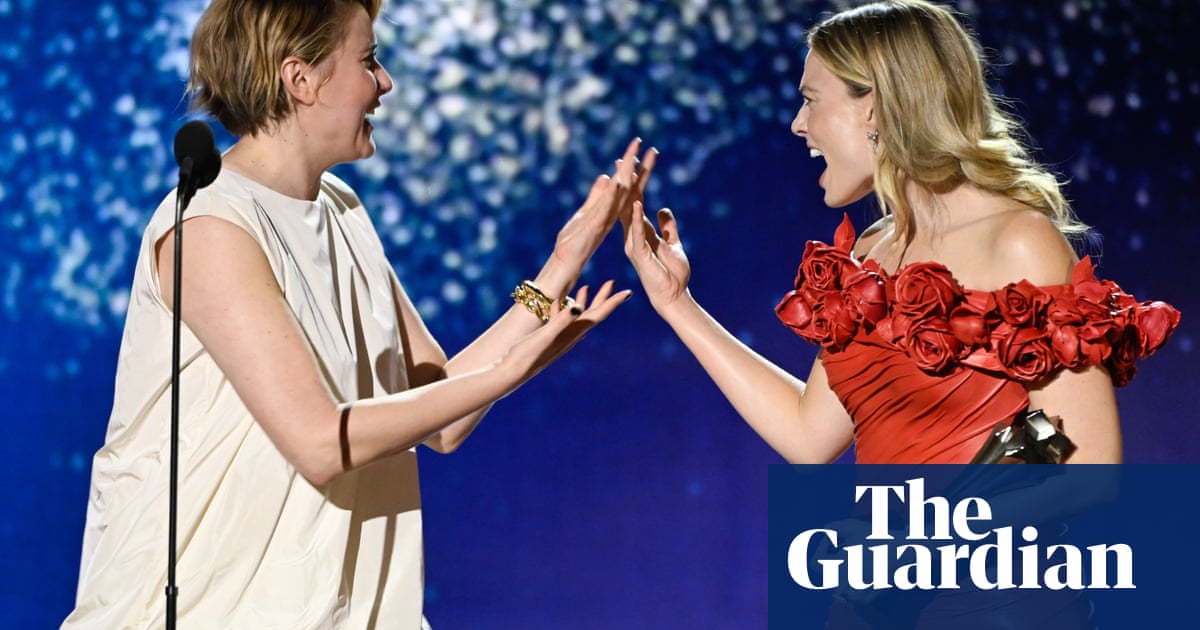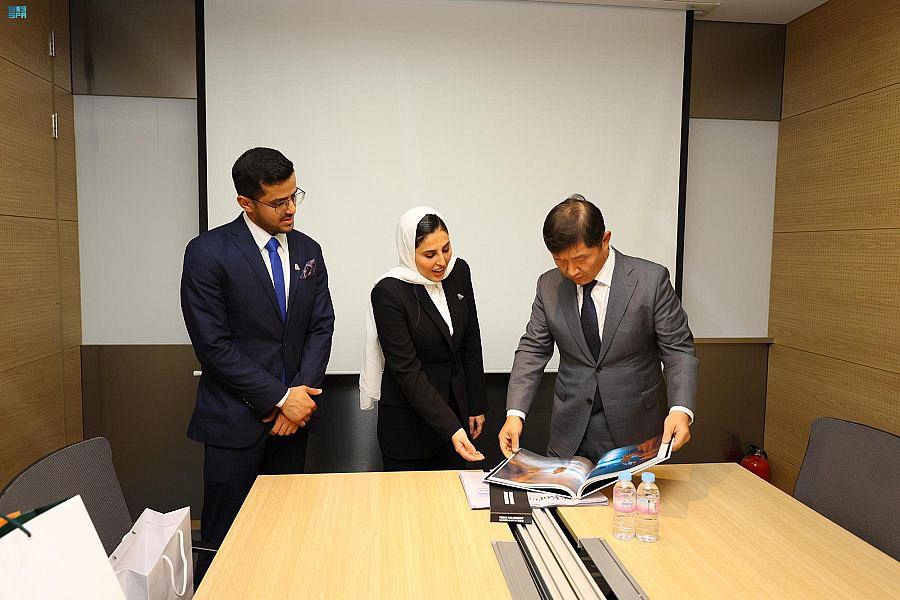
“Icall it the ‘holy slap’ now,” purred Jada Pinkett Smith of her husband’s decision to lamp Chris Rock on stage at the Oscars two years ago, “because so many positive things came after it.” God love ’em and everything, but aren’t celebrities incredible? There really is nothing – no incident too blatantly ghastly and embarrassing – that cannot be folded into some kind of aspirational narrative of personal growth. Just as Gwyneth Paltrow’s “conscious uncoupling” offered an opportunity for Her Vajesty to get gorgeously divorced in a way normies could never, so Jada would have you believe that public assault lies on the other side of the glass against which the likes of us can only press our envious snotty noses.
But look, the Oscar nominations are out today! The whole pageant is about to crank up once more, though the obvious sadness is that Will Smith was formally banned from the ceremony for 10 years, meaning attenders at the 10 March event will have to sit through approximately 27 hours of it, miserably safe in the knowledge that no outbreak of “holy” low-level violence could occur.
Then again, it’s always possible someone else could step up. In 1944, Billy Wilder felt (quite rightly) that his movie Double Indemnity had been robbed of best picture by Leo McCarey’s Going My Way, so he stuck his foot out in the aisle as the rival director was going up to the stage to collect it. I’m trying to imagine the modern equivalent – maybe The Zone of Interest director Jonathan Glazer taking down Oppenheimer’s Christopher Nolan? Obviously: would watch. But I fear my constitution might not be up to the sheer weight of international think pieces that would follow the equivalent of McCarey’s faceplant were it to occur in 2024.
Perhaps the next best option for confecting eyeball-drawing drama would be to up the number of Oscar statuettes coated in that invisible special substance that makes the person presented with it say incredibly embarrassing things. You know the stuff – Oscars are like those padron peppers. Every now and then you get a hot one.
Fortunately, some Oscar-related amusements are in ready supply. Indeed, there have been a number of reports over the past few weeks suggesting that high-end fashion has simply run out. As in, A-list dressers have got to the end of haute couture. Much as people “completed Netflix” during the special circumstances of the pandemic, it seems that the sheer full-spectrum, multi-theatre war of this awards season – coming after the drought caused by the screen actors’ and screenwriters’ strikes last year – means that there is an ACUTE red-carpet gown shortage. In a world absolutely beset by problems, sometimes we all need to just cackle at those so rarefied that they would be mortified to be described as anything as infra dig as “first world”. Let’s take a look at this crisis situation. “The showrooms have been wiped out,” one stylist breathed to The Hollywood Reporter.
I can’t help feeling that the positively feverish pitch of this year’s awards season thus far stands in ironic counterpoint to the commercial realities buffeting the movie industry. This has certainly happened in the infinitely more glamorous arena of British newspaper journalism. The more journalism has been under threat, the more it has been riven by cuts, the more it has lost out to big tech … the more awards ceremonies seem to have sprung up. There are now several of them every year, each claiming at some point to be “the Oscars of British journalism”. And perhaps they are, now that the Oscars isn’t even the Oscars as it used to be.
Please don’t get me wrong, as I’m one of the weirdos who’s seen all the best picture nominations, but we do have to accept that we live in an age where blockbusters of the past such as The Deer Hunter or Rain Man would now be niche features getting utterly whipped at the box office by franchises or movies based on video games or toys. This is an industry in which “Lena Dunham’s Polly Pocket movie” and “Daniel Kaluuya’s Barney the Dinosaur movie” are actual forthcoming projects that are actually happening. A couple of years ago, would-be awards contenders contained no fewer than three love letters to cinema by three previously Oscar-winning directors (Steven Spielberg, Sam Mendes and Damien Chazelle), whose total combined US domestic gross was about one-38th of Avatar: The Way of Water. It was about a 23rd of Doctor Strange in the Multiverse of Madness (not one that troubled the Academy).
In some ways, then, 2024 is a curate’s egg. This year finds the industry torn between the modern novelty of there being best picture nominations for movies that lots and lots of people have actually seen – Barbie and Oppenheimer – and the knowledge that this is not about to be replicated in the immediate outlook. Theatrical chains expect 2024 North American box office to be 11% down on 2023 figures, while even TV viewership for ceremonies such as the Golden Globes is miles below what it used to be. The Oscars always used to claim its telecast was watched by a billion people, but seems to have quietly retired this claim in recent years. Last year, 18.8 million US viewers tuned in. The division of blame between studios, tech companies and even audiences is a matter of continuing debate. But a holy slap has been delivered to cinema, and even a business built on pretending increasingly no longer avoids acknowledging it.
Marina Hyde is a Guardian columnist












